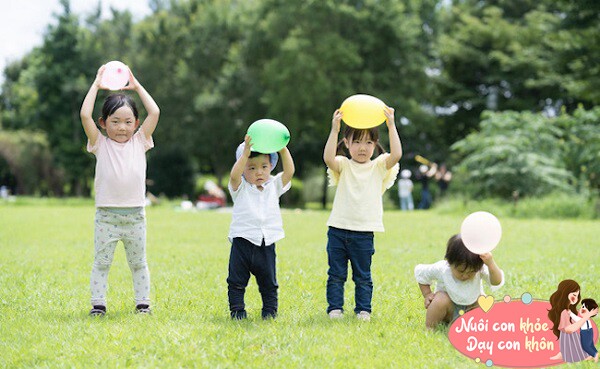Children with strong personalities are often confident, expressive, and unafraid to face challenges. This suggests that, in addition to raising well-behaved children, parents should also focus on developing their self-confidence and leadership skills. So, how can parents raise a child who is both warm and sharp?


There are no rewards in the world of “obedient children”
Many people believe in raising children with the idea of “no fighting or competition,” while rapid societal changes increasingly encourage children toward “healthy aggression.”
A psychology expert analyzes that children who consistently remain “obedient” are potentially endangering their future.
Lack of Confidence
According to psychology, overly obedient children tend to view their “own needs” as “mistakes” and gradually lose their ability to assert themselves.
The original intention of the parents was to instill humility and politeness in the children, but in reality, being “a bit aggressive” is a symbol of vitality.

Overly obedient children tend to view their “own needs” as “mistakes.”
Marginalized in Social Interactions
Many parents emphasize to their children the importance of being generous and polite.
However, if children are too humble, it will not benefit them in establishing equal relationships.
A survey in China showed that about 68% of well-behaved children chose to remain silent when bullied at school, while those who dared to express their opinions had a 41% higher level of satisfaction in their interpersonal relationships.
Teaching children to vent their anger appropriately is actually a way for them to declare to the world, “I won’t be bullied.”
Difficulties in Adult Work Life
A study by Harvard University found that children who suppress their needs from an early age tend to have an average salary that is 18% lower when they grow up—further confirming this situation.
Nowadays, there are many well-behaved and excellent children, but most of them are meek and lack a competitive spirit. The world will never positively reward children who are just “obedient.”

An “aggressive” child does not mean they are poorly educated and will hurt others
We often associate “aggression” with being irrational, sentimental, and sharp-tongued.
However, being sharp-tongued does not mean being ignorant or hurting others.
In reality, “aggression” can also be peaceful, wise, and comforting.
This is not solely an extrovert trait but rather the ability to avoid internal conflicts, say no when necessary, and resolve conflicts positively.
From this perspective, not only children but also adults need to learn this skill.

“Aggression” can also manifest as peaceful, wise, and comforting behavior.

Expert-suggested formula for developing “healthy aggression” in children
So, how do we nurture “healthy aggression”?
A psychology expert wrote a formula: Healthy Aggression = Self-Assertion + Empathy + Problem-Solving
Self-Assertion: Dare to Say “No”
Professor Li Meijin once said, “When a child is being bullied, it is more important to teach them to say, ‘Don’t hit me!’ rather than ‘Tell the teacher.’ The former fosters courage, while the latter fosters dependence.”
Each time a child says “no” and is encouraged to express themselves clearly, they practice these exercises repeatedly throughout their lives.
When faced with conflict, children can shift from “physiological withdrawal” to “self-defense” with justifiable reasons.
Empathy for Others: Wisdom from “Confrontation” to “Dialogue”
“Healthy aggression” is not about overpowering others with motivation but about resolving issues.
This requires children to be able to control the situation and understand needs.
When we view problematic events as opportunities for children to practice, through repeated reviews, transforming “not arguing” into “arguing appropriately,” children can gradually absorb the wisdom of shifting from “confrontation” to “dialogue.”

Children can shift from “physiological withdrawal” to “self-defense” when faced with conflict.
Problem-Solving: Turning “Conflict” into “Win-Win”
Child psychologist Gordon Neufeld stated, “True strength is the ability to embrace the world gently but also have the courage to set clear boundaries.”
When teaching children to view others and themselves in a particular way, they are more likely to solve problems creatively.
Needs of the other party → my needs → a mutually beneficial solution. Resolving “conflict” does not mean “I win, you lose” but can also be a “cooperative, mutually beneficial” outcome.
Therefore, the parenting attitude determines how children interact with the world. With the rapid changes in modern society, it is essential to raise children who are “gentle yet sharp, humble yet strong,” confidently and harmoniously.
“5 Powerful Phrases Parents Can Use to Instill a Sense of Royalty in Their Children”
Nurturing a child’s inner strength and resilience is paramount, and parental guidance plays a pivotal role in this regard. Words from parents can empower children with a robust sense of self, positive behavior, and a confident demeanor, equipping them with the tools to navigate and protect themselves in an ever-changing world.
Why Parents Should Want Their Child to Be Like Nobita?
“We all know Nobita from the beloved Doraemon series, but have you ever wondered why parents should aspire for their children to emulate this quirky character? With his unique blend of qualities, Nobita embodies values that can inspire a generation. In this article, we delve into the heart of Nobita’s charm and explore why he just might be the role model your kids need. Get ready to see this familiar face in a whole new light!”




































